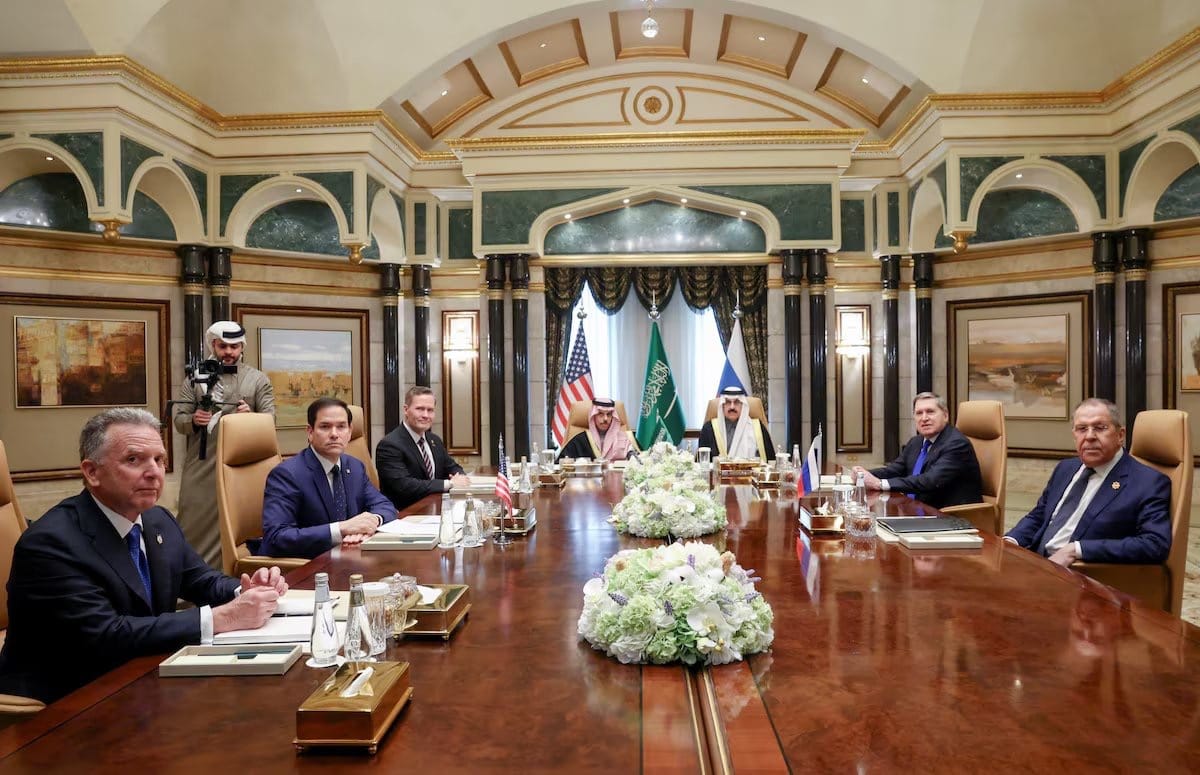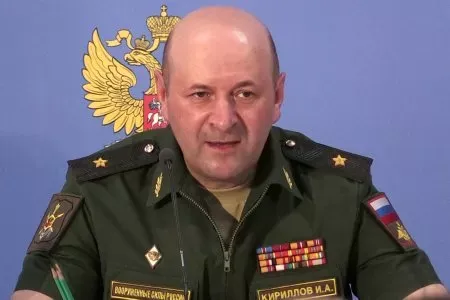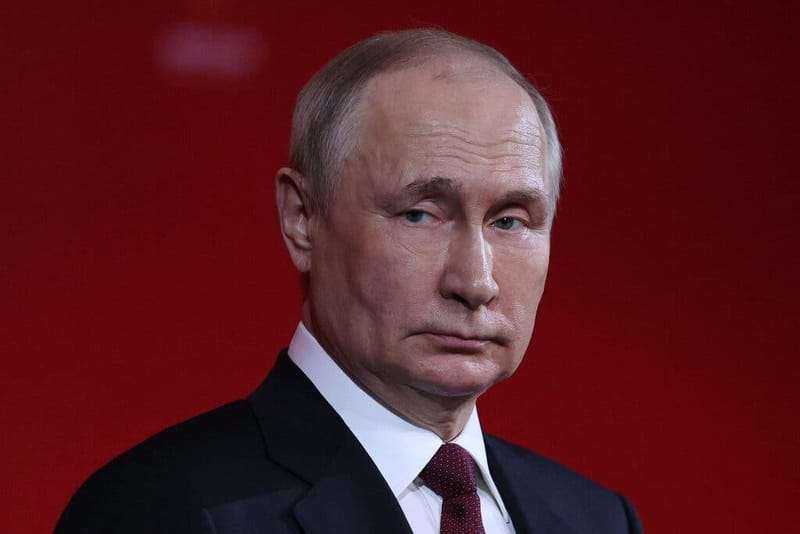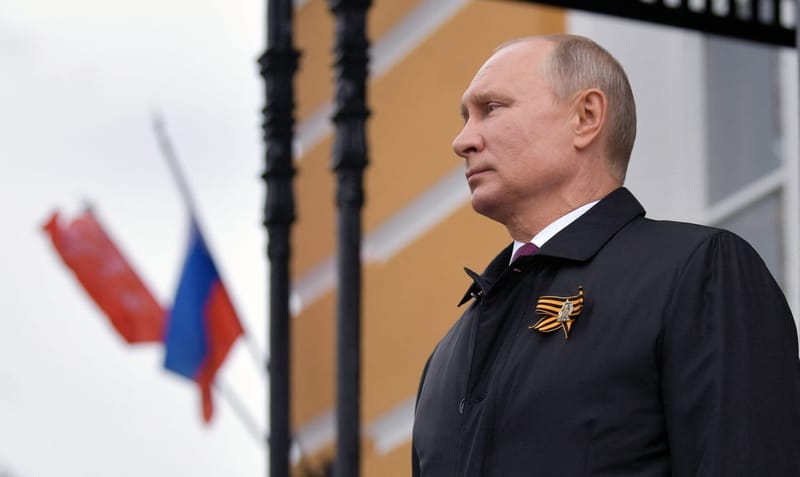U.S. and Russia Launch Peace Talks in Riyadh to End Ukraine War
High-Level Meeting Signals Thaw in Relations, but Ukraine and Europe Demand a Voice February 18, 2025 - RIYADH, Saudi Arabia — In a landmark diplomatic move, senior U.S. and Russian officials convened today at Diriyah Palace in Riyadh to outline a peace strategy aimed at resolving the ongoing war in
High-Level Meeting Signals Thaw in Relations, but Ukraine and Europe Demand a Voice
February 18, 2025 - RIYADH, Saudi Arabia — In a landmark diplomatic move, senior U.S. and Russian officials convened today at Diriyah Palace in Riyadh to outline a peace strategy aimed at resolving the ongoing war in Ukraine, marking the first significant face-to-face talks between the two powers since Russia’s invasion began nearly three years ago. The meeting, hosted by Saudi Arabia, reflects a shift in U.S. foreign policy under President Donald Trump’s administration, prioritizing dialogue with Moscow over isolation—a stark contrast to the previous Biden administration’s approach.
The U.S. delegation, led by Secretary of State Marco Rubio and joined by National Security Advisor Mike Waltz and Middle East envoy Steve Witkoff, met with Russian Foreign Minister Sergei Lavrov and presidential advisor Yuri Ushakov. The agenda focused on de-escalating bilateral tensions and forging a path to end the conflict in Ukraine, which has claimed countless lives and displaced millions since February 24, 2022. Notably absent from the talks was Ukraine itself, sparking sharp criticism from Ukrainian President Volodymyr Zelenskyy, who insisted that Kyiv must be included in any decisions about its future.
NEW: The U.S. and Russia begin the summit in Riyadh, Saudi Arabia, negotiating the end to Russia’s invasion of Ukraine.
— Alex Salvi (@alexsalvinews) February 18, 2025
🇺🇸 Secretary of State Rubio, National Security Advisor Waltz, Middle East Envoy Steve Witkoff.
🇷🇺 Foreign Minister Lavrov, Presidential advisor Ushakov pic.twitter.com/jPjEbkL3aY
The discussions yielded tentative progress, with both sides agreeing to establish a “consultation mechanism” to address strained U.S.-Russia relations, including plans to restaff embassies hollowed out by years of diplomatic friction. They also committed to forming high-level teams to negotiate a sustainable peace deal for Ukraine, though details remain scarce. Rubio described the meeting as “the first step of a long and difficult journey,” emphasizing that any resolution must balance the interests of Ukraine, Europe, and Russia. Lavrov called the talks “serious and businesslike,” while Ushakov revealed that groundwork was laid for a potential Trump-Putin summit, though no timeline was confirmed.
Russia reiterated its firm demands: Ukraine’s permanent exclusion from NATO—going beyond a mere pledge to reversing the 2008 NATO summit promise of eventual membership—and a rejection of European peacekeeping forces, which Moscow views as provocative. The U.S. signaled openness to compromise, with Rubio noting that European Union involvement would be essential, particularly on sanctions relief, but stopped short of endorsing Russia’s territorial claims or NATO stance.
The exclusion of Ukraine and European allies from the Riyadh talks has fueled unease. Zelenskyy, who plans to meet Saudi Crown Prince Mohammed bin Salman on February 19, warned that Kyiv would not accept agreements made over its head. Across the Atlantic, European leaders gathered in Paris on February 17 for an emergency summit, pledging support for Ukraine but offering mixed signals on next steps. The UK’s Keir Starmer floated deploying British troops for a potential peace deal, while Poland’s Donald Tusk ruled out such a move.
Russia-US talks, aimed at mending relations between the two nations and addressing the conflict in Ukraine, begin in Saudi Arabia's capital, Riyadh https://t.co/QVNJfrMvQG ⤵️ pic.twitter.com/8smzu0t2hV
— Anadolu English (@anadoluagency) February 18, 2025
Beyond Ukraine, the talks hinted at broader U.S.-Russia rapprochement. Kirill Dmitriev, head of the Russian Direct Investment Fund, pointed to the $300 billion U.S. companies lost exiting Russia as a motivator for economic re-engagement. Saudi Arabia’s role as a neutral broker underscored its growing diplomatic clout, with Crown Prince Mohammed bin Salman positioning the kingdom as a mediator in global conflicts.
Analysts caution that today’s meeting is merely a starting point. The Trump administration frames it as a trust-building exercise, but Russia’s hardened positions and the absence of key stakeholders like Ukraine and Europe cast doubt on swift progress. As the world watches, the road to peace remains fraught with challenges, with the next steps hinging on whether this fragile dialogue can expand into a truly inclusive process.




